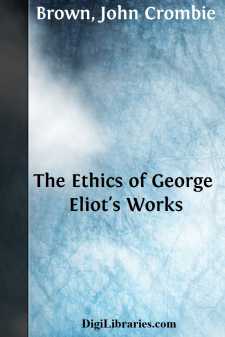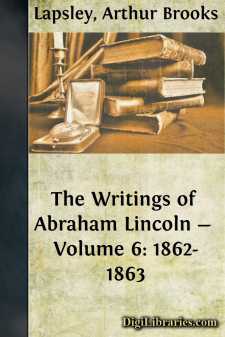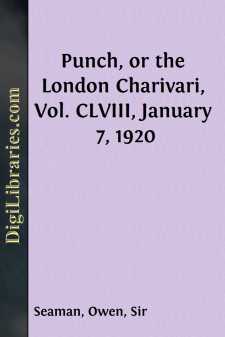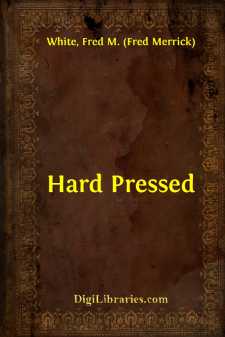Categories
- Antiques & Collectibles 13
- Architecture 36
- Art 48
- Bibles 22
- Biography & Autobiography 813
- Body, Mind & Spirit 142
- Business & Economics 28
- Children's Books 17
- Children's Fiction 14
- Computers 4
- Cooking 94
- Crafts & Hobbies 4
- Drama 346
- Education 46
- Family & Relationships 57
- Fiction 11829
- Games 19
- Gardening 17
- Health & Fitness 34
- History 1377
- House & Home 1
- Humor 147
- Juvenile Fiction 1873
- Juvenile Nonfiction 202
- Language Arts & Disciplines 88
- Law 16
- Literary Collections 686
- Literary Criticism 179
- Mathematics 13
- Medical 41
- Music 40
- Nature 179
- Non-Classifiable 1768
- Performing Arts 7
- Periodicals 1453
- Philosophy 64
- Photography 2
- Poetry 896
- Political Science 203
- Psychology 42
- Reference 154
- Religion 513
- Science 126
- Self-Help 84
- Social Science 81
- Sports & Recreation 34
- Study Aids 3
- Technology & Engineering 59
- Transportation 23
- Travel 463
- True Crime 29
Sort by:
THE ETHICS OF GEORGE ELIOT’S WORKS. “There is in man a higher than love of happiness: he can do without happiness, and instead thereof find blessedness.” Such may be regarded as the fundamental lesson which one of the great teachers of our time has been labouring to impress upon the age. The truth, and the practical corollary from it, are not now first enunciated. Representing, as we believe...
more...
They burned a witch in Bingham SquareLast Friday afternoon.The faggot-smoke was blacker thanThe shadows on the moon;The licking flames were strangely greenLike fox-fire on the fen ...And she who cursed the godly folkWill never curse again.They burned a witch in Bingham SquareBefore the village gate.A huswife raised a skinny handTo damn her, tense with hate.A huckster threw a jagged stone—Her pallid...
more...
RECOMMENDATION OF NAVAL OFFICERS MESSAGE TO CONGRESS. WASHINGTON, D.C., May 14, 1862.TO SENATE AND HOUSE OF REPRESENTATIVES:The third section of the "Act further to promote the efficiency of the Navy," approved 21st of December, 1861, provides: "That the President of the United States by and with the advice and consent of the Senate, shall have the authority to detail from the retired list...
more...
OCTOBER. FIRST DAY OF SCHOOL. Monday, 17th. To-day is the first day of school. These three months of vacation in the country have passed like a dream. This morning my mother conducted me to the Baretti schoolhouse to have me enter for the third elementary course: I was thinking of the country and went unwillingly. All the streets were swarming with boys: the two book-shops were thronged with fathers...
more...
by:
Owen Seaman
NEW WELLS FOR OLD. Over the top of Part II. of The Outline of History I caught the smiling glance of the man in the opposite corner of the compartment. "Good stuff that," he said, indicating the History with a jerk of his head. "Quite," I agreed, maintaining my distance. "Immense," he continued. "And it means the dawn of a new life for me. I'm Wells's hero. Every...
more...
CHAPTER I. FAMOUS SOUTHWARK INNS. Unique among the quaint maps of old London is one which traces the ground-plan of Southwark as it appeared early in the sixteenth century. It is not the kind of map which would ensure examination honours for its author were he competing among schoolboys of the twentieth century, but it has a quality of archaic simplicity which makes it a more precious possession than...
more...
CHAPTER I IT was a gala night at the National Opera House, and the theatre was crammed from floor to roof, for Melba was sustaining a new part, and all London had gathered to listen. It was rarely indeed that so fashionable an audience assembled in February. The boxes were ablaze with diamonds. On the grand tier, however, there was one box which was not filled with gaily garbed women and which...
more...
A CROSSED TRAIL The tenderfoot rose from the ledge upon which he had been lying and stretched himself stiffly. The chill of the long night had set him shivering. His bones ached from the pressure of his body upon the rock where he had slept and waked and dozed again with troubled dreams. The sharpness of his hunger made him light-headed. Thirst tortured him. His throat was a lime-kiln, his tongue...
more...
WITHOUT DOGMA. ROME, 9 January. Some months ago I met my old friend and school-fellow, Jozef Sniatynski, who for the last few years has occupied a prominent place among our literary men. In a discussion about literature Sniatynski spoke about diaries. He said that a man who leaves memoirs, whether well or badly written, provided they be sincere, renders a service to future psychologists and writers,...
more...
CHAPTER I THE CLUTCHING HAND "Jameson, here's a story I wish you'd follow up," remarked the managing editor of the Star to me one evening after I had turned in an assignment of the late afternoon. He handed me a clipping from the evening edition of the Star and I quickly ran my eye over the headline: "THE CLUTCHING HAND" WINS AGAIN NEW YORK'S MYSTERIOUS MASTER CRIMINAL...
more...











